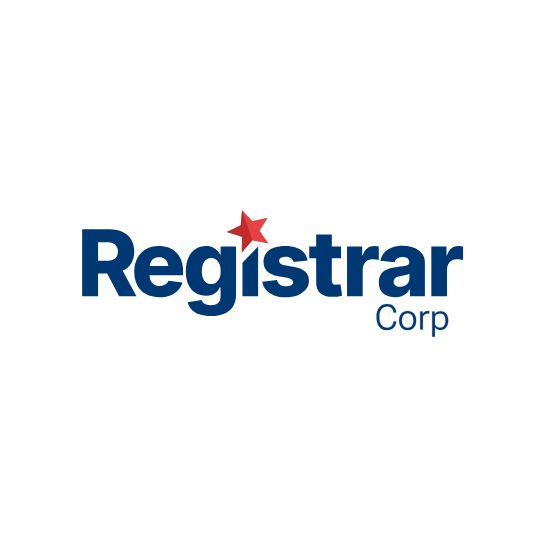The regulatory landscape for over-the-counter (OTC) drug products has undergone significant transformation in recent years. As the demand for nonprescription medicines continues to grow globally, so too does the need for a responsive and efficient oversight framework that ensures safety, transparency, and innovation.
In 2020, the U.S. Congress established the Over-the-Counter Monograph Drug User Fee Program (OMUFA) through the Coronavirus Aid, Relief, and Economic Security (CARES) Act. This landmark legislation granted the US Food and Drug Administration (FDA) new authority to collect user fees from the OTC drug industry. These fees directly support the agency’s efforts to modernize the monograph system, enabling faster updates, clearer regulatory pathways, and enhanced public health protections.
This article provides a detailed overview of OMUFA—what it is, how it works, who it affects, and how to stay compliant while navigating the evolving OTC regulatory environment.
What is OMUFA?
OMUFA is a user fee program that funds the FDA’s oversight and administration of OTC monograph drugs. The program was created to address longstanding inefficiencies in the way OTC drugs were regulated—primarily the outdated rulemaking process, which often delayed safety updates, labeling changes, and innovation by years.
OMUFA streamlines this process by allowing stakeholders to submit monograph change requests known as OTC Monograph Order Requests (OMORs). In return, the FDA is held to performance goals and review timelines, increasing predictability for manufacturers.
Patterned after successful frameworks like the Prescription Drug User Fee Act (PDUFA) and Generic Drug User Fee Amendments (GDUFA), OMUFA is specifically tailored to the nonprescription drug market. It applies to products regulated under the FDA’s OTC monograph system and does not cover those marketed under new drug applications (NDAs).
Key Components of OMUFA
OMUFA imposes two main categories of fees on industry participants: facility fees and OMOR fees. These fees are adjusted annually by the FDA based on inflation, program requirements, and the number of entities subject to payment.
Facility Fees: Updated Rates for FY 2025
Any facility that manufactures or processes finished dosage forms of OTC monograph drugs must pay an annual facility fee to the FDA. This applies whether the facility is based in the United States or abroad.
For Fiscal Year 2025, the annual fee for a Monograph Drug Facility (MDF) is $37,556. Facilities that operate as Contract Manufacturing Organizations (CMOs), producing OTC drugs solely under contract for third parties, are subject to a reduced rate of $25,037. These amounts reflect a 9.9% increase over the 2024 rates.
A facility is considered liable if it was registered with the FDA at any point between January 1 and December 31 of the previous year. Deregistering after the new year begins does not remove the obligation to pay the current year’s fee.
There are limited exemptions. Facilities engaged solely in overpackaging may avoid the fee, but only if each individual unit within the packaging bears complete, FDA-compliant labeling. Otherwise, the facility is subject to full payment. Additionally, there are no fee waivers based on company size, output volume, or revenue.
OMOR Fees: Supporting Monograph Modernization
OMORs are the central mechanism by which companies request updates, changes, or additions to existing OTC monographs. These submissions allow for a streamlined review process and are a critical part of OMUFA’s modernization goals.
In FY 2025, the fee for a Tier 1 OMOR—used for substantial changes such as new active ingredients, therapeutic uses, or dosage forms—is $559,777. For Tier 2 OMORs, which involve more limited modifications like labeling or formatting adjustments, the fee is $111,955. These fees increased approximately 4.2% from FY 2024.
Payment is due at the time of submission. The FDA may issue partial refunds if an OMOR is withdrawn before being accepted for filing, or if minimal work has been performed. OMORs addressing safety-related changes are exempt from fees.
It is important to note that OMOR submissions from facilities with outstanding OMUFA debts will not be reviewed. Staying current with all fees is essential to maintaining regulatory momentum.
Performance Goals and Accountability
OMUFA is not just about funding; it’s about improving outcomes. As part of the program, the FDA agrees to performance goals defined in its OMUFA Commitment Letter. These goals include target review times for OMORs and other monograph-related actions.
The agency is also required to publish annual performance reports that track its progress in meeting these benchmarks. This creates a more transparent, accountable relationship between industry and regulator, offering manufacturers better visibility into review timelines and expectations.
Who Is Subject to OMUFA?
OMUFA applies to any business that manufactures or processes OTC monograph drugs in finished dosage form. This includes:
- Branded and private-label manufacturers
- Contract Manufacturing Organizations (CMOs)
- Foreign facilities importing products to the U.S. market
A facility is considered subject to the OMUFA facility fee if it was registered with the FDA during the prior calendar year. Timing is critical: if your company intends to avoid the following year’s fee, you must cancel the facility registration before December 31.
Entities that only distribute, warehouse, or overpackage already labeled and compliant products may qualify for exemption. However, the burden of proving eligibility lies with the registrant.
The Consequences of Noncompliance
Failing to pay OMUFA fees can lead to serious consequences. The FDA considers products from delinquent facilities to be misbranded under the Federal Food, Drug, and Cosmetic Act, which can result in:
- Detentions and import refusals
- Market removals
- Ineligibility for OMOR submissions
- Public listing on the FDA’s arrears list
Additionally, unpaid fees are subject to administrative penalties and interest. The FDA imposes a $20 fee for each 30-day period of nonpayment and assesses 6% annual interest on overdue balances. Noncompliance not only impacts operational timelines but can also damage brand credibility.
Take Control of Compliance Before Compliance Controls You
Regulatory expectations for OTC drug manufacturers have never been higher. With the FDA accelerating its enforcement of OMUFA obligations, businesses can no longer afford to treat user fees and monograph compliance as back-office afterthoughts. Facility fees, OMORs, labeling updates, and timely deregistrations are all time-sensitive, high-stakes decisions that directly impact your market access, product integrity, and brand credibility.
Don’t wait until you’re facing misbranding designations, OMOR denials, or surprise fee invoices to take OMUFA seriously. With an experienced compliance ally like Registrar Corp, OTC manufacturers, private labelers, and CMOs can navigate OMUFA with precision ensuring correct fee classification, effective OMOR execution, and fully compliant facility registrations.
Ready to simplify your OMUFA compliance and move forward with confidence? Connect with Registrar Corp today to get expert guidance tailored to your operations and regulatory goals.









